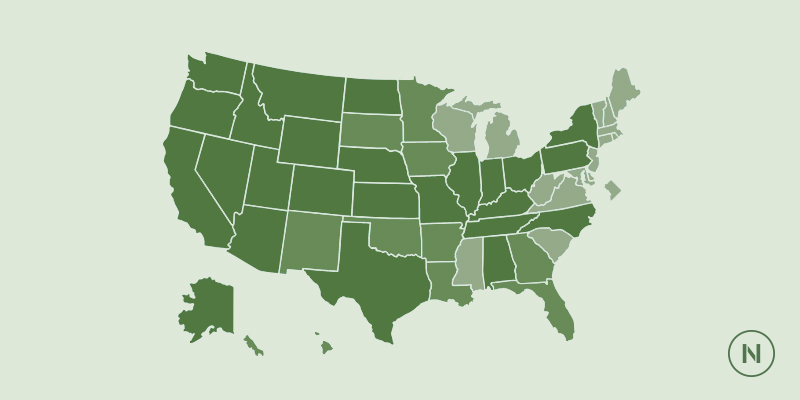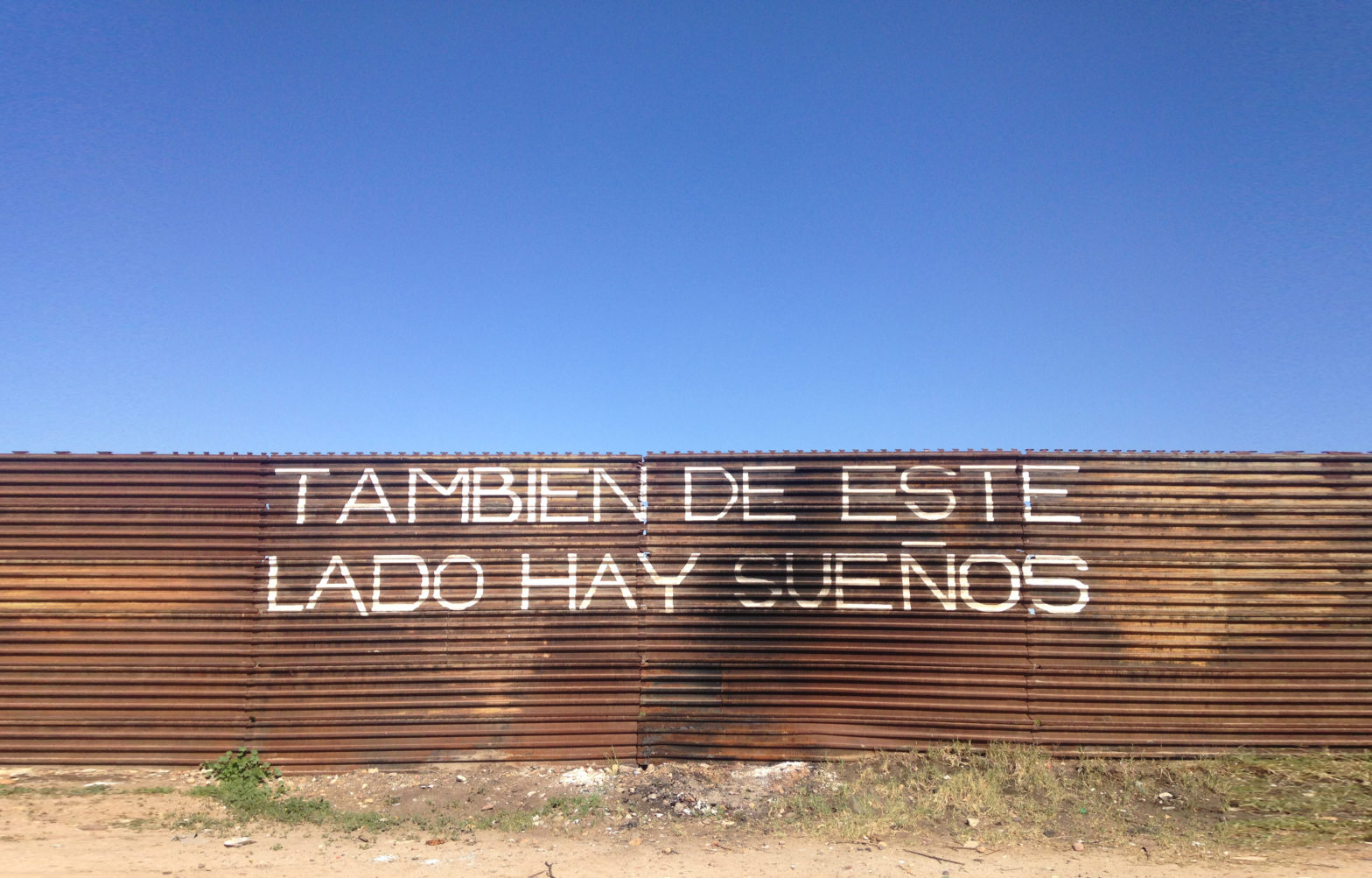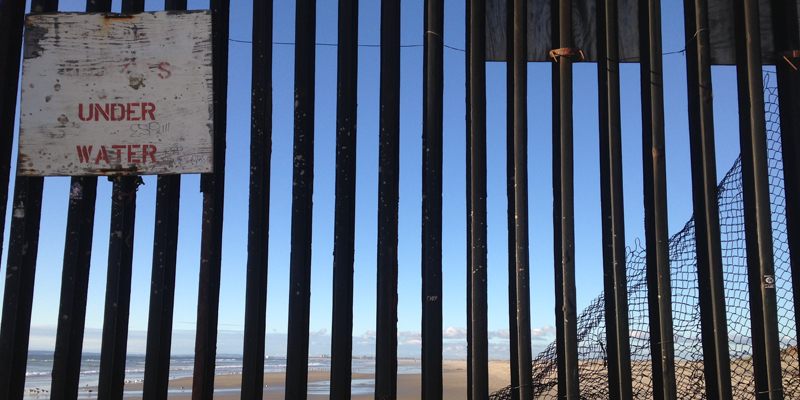



Las personas que quieren abortar lo hacen sin importar si es legal o no en el lugar en donde viven. Cada aborto es un caso único, queremos conocer tu historia, si quieres colaborar con nostros mándanos tu testimonio a ennepantla@gmail.com.
We know people seeking abortions obtain abortion care no matter if it’s legal or not. Every abortion story is distinct. We want to hear your stories! If you’d like to collaborate with us, share your experiences with us directly, via email ennepantla@gmail.com.
Carolina
De Ensenada, Baja California
Edad actual: 28
Pues en primer lugar, no habían estas redes de acompañamiento o esta difusión de las mismas en el estado, entonces me sentía completamente sola. Me sentía como que no podía hablar de esta situación, solamente con algunas personas en específico. La información que había al respecto era muy difusa y en el internet había mucha información también, así que me tenía que meter a grupos y páginas feministas para requerir información correcta. Cuando viajé no tenía con quien quedarme más que con familiares entonces era muy complicado porque no podía decir “ah vine a abortar”, entonces tenía toda esta situación de vómitos diarios y tenía que vomitar escondida y no hacer ruido para hacer este tipo de cosas.
Tuve acoso sexual una noche antes de irme a la clínica, tenía que estar allí a las 6 de la mañana y esto implicaba caminar por varias calles de la Ciudad de México como a las 5:30 de la mañana sola, no eran muchas calles, pero no conocía la ciudad; entonces cuando llegué al lugar no encontré a nadie que me pudiera acompañar en ese momento, una asociación que yo ya sabía que existía estaban de vacaciones entonces me dijeron “ahora no te podemos atender hasta después del 6 de enero” y dije “ah perdón es que estoy embarazada no las puedo esperar, jaja”.
Entonces todo este tipo de situaciones, el no tener una acompañante en cuanto llegué a la clínica, llegar a la clínica y enfrentar todos estos grupos que no están de acuerdo y que te muestran ultrasonidos de muchos meses de embarazo, el no tener el dinero para poder regresar a mi estado, fueron este tipo de situaciones que no lo hicieron tan sencillo, por así decirlo.
Pero igual se crearon también otros vínculos, al final, una mujer que también estaba adentro de la clínica y que también iba a abortar terminó compartiendo conmigo cosas que necesitaba que normalmente te las brinda la persona que te está acompañando porque se compran desde afuera de la clínica y tú ya no puedes salir, entonces cosas como papel de baño, una cobija, una pluma, etc. pues esta chica empezó a compartir a su acompañante conmigo, allí también se crearon otras redes.
La ventaja de la amiga que acompañé, tiempo después, fue que le pude explicar toda las cosas que iba a necesitar que tenía que ir con una persona, a qué hora tenía que llegar a la clínica, qué transporte iba a tener que tomar para llegar allí, ya fue más fácil, creo yo, para ella ya tener toda esta información.
Al final, vino por mi una chica que nada más conocía por internet por otro amigo y llegó por mi justo cuando yo iba saliendo de la clínica, me dejó estar unas horas en su casa, pero igual ella estaba con su mamá, entonces era como que estaba pues allí. Básicamente después de esta situación, ya había pasado la parte más caótica por así decirlo, al dia siguiente amanecí súper bien y con hambre, que fue algo muy bueno también, no vomitar el desayuno.
From Ensenada, Baja California.
Age now: 28
Firstly, there weren’t these networks of acompañantes or at least there wasn’t a lot of information about them in my state so I felt really alone. I felt like I couldn’t talk about my situation except for with a few people. The information available was vague, on the internet there was a lot of information, but I had to go look for resources on feminist pages and Facebook groups to get more details. When I traveled to Mexico City, I didn’t have anywhere to stay except with family and that was complicated because I couldn’t tell them I had come to get an abortion. I was vomiting every day and I had to hide and not make very much noise. The night before my appointment I was sexually assaulted. I had to be at the clinic at 6 AM and this meant walking the streets of Mexico City alone at 5:30AM which was a little, well, I don’t know the city. I couldn’t find anyone to accompany me. I knew about an organization that provided accompaniment, but they were on vacation. When I called them, they said they couldn’t help me until after the 6th of January and I said “Mmm sorry, I’m pregnant, I can’t really wait” [laughs]
So, all of these types of situations: not having anyone to accompany me when I got to the clinic, arriving at the clinic and being confronted by those anti-abortion groups who show you ultrasounds from the third-trimester, the fact that I didn’t have enough money to get back to my home state, all these conditions made [my abortion] not as simple as it could have been. But even so, I made connections.
There was a woman in the clinic with me who was also getting an abortion and she ended up sharing things with me, things that the person who accompanies you helps you get once you’re inside the clinic and can’t leave, things like toilet paper, a blanket, a pen. This woman started to share her acompañante with me and new connections were forged. Then the advantage that my friend who I accompanied a few months after getting my abortion had was that I was able to explain to her all of this, share with her information about the fact she needed to go to the clinic with someone, what time the appointment would be, how to get their on public transport, what she would need to bring, so I think it was easier for her.
In the end, a friend I knew from internet, a friend of a friend, came to get me right when I was leaving the clinic and she let me stay a few hours at her house, but it this was also complicated because she was with her mom. But basically, after the procedure, the most chaotic part was over with. The next day I woke up feeling really good and I was hungry! Feeling hungry was great, it was great not to throw up my breakfast.
Marina
De Tijuana, Baja California.
Edad actual: 30
Quiero empezar diciendo que fue una decisión de mi pareja echarme los espermas, yo estaba participando, pero ese no era el acuerdo. Realmente la decisión de que yo pasara por esto fue de un hombre, no fue mía, por que el acuerdo fue “afuera”. Y ese acuerdo había durado años, como tres años, todo perfecto, unos sustillos por ahí pero nunca nada. Y pues por el mismo mito, que también es un mito, de no tomarte las pastillas del día siguiente tan frecuentemente porque te causan problemas, ese mismo mito hace que digas “ay no, mejor no me la tomo, no sé, no ví cuánto te veniste, ¿un poquito afuera y la mitad adentro?” entonces no me la tomé como por 24 horas o tal vez 30; al día siguiente que era domingo me la tomé, estaba dentro de las 72 horas, pero no funcionó.
Tuve el resultado, me hice la prueba en el trabajo a la hora de la comida y dije: “n’hombre estoy embarazada”, en ese momento yo no tenía ni una duda, entonces le hablé a mi ginecólogo y él me pasó el número de planned parenthood; no me informó mucho de otras opciones, como de las pastillas, me dijo que lo mejor era planned parenthood porque yo tengo visa, tenía dinero, tenía carro o a alguien que me llevara y todas esas condiciones las reunía.
Me enteré con tiempo, entonces hice la cita, un martes confirmé todo y el sábado tenía la cita, me acompañaron mis hermanas. El procedimiento fue un poquito doloroso, cólicos fuertes y ya, fue todo en la clínica, el personal de ahí súper bien.
Yo ya había acabado la maestría, tenía un trabajo estable, yo tenía todo, claro que la persona que era mi pareja, el que decidió echarme sus espermas, él era un flojo, no trabajaba, era alcohólico y hasta violento, tenía mucho potencial de muchos problemas; aparte yo al final iba a estarlo manteniendo, literal, a la criatura y a él. Entonces para mi eso fue un factor decisivo, yo no quería estar asociada con ese tipo de sufrimiento de pareja y entonces yo veía mujeres que tenían situaciones todavía mucho peores que con 5 pesos se decidían a tener a sus hijos y eso se me hacía sentir como si eso fuera valentía y no tenerlo fuera como cobardía, me sentía culpable por eso, no por la criatura, pero por ver como otra mujeres peleaban con todo.
Para mi, de lo más trascendente en la lucha feminista es que una mujer pueda decidir tenerlo o no tenerlo, pero puede decidir, de toda la lucha feminista, que si el trabajo, que si uso falda, que si me acosan, entre todo esto que es muy importante, lo que pienso que más trasciende en la vida de una mujer, es decidir cuántos hijos tiene y en qué espacio de tiempo los tiene.
From Tijuana, Baja California.
Age now: 30
I want to start by saying that it was the decision of my partner to put his sperm inside me. I was involved, but that was not the agreement. The decision that put me in the position of seeking an abortion was a decision made by a man; it was not my decision. The agreement had been to pull out. And that was the agreement for years, three years, and, everything was perfect, aside from a few scares, but nothing ever happened.
I’ll add that, because of the myth about the dangers of the over-use of the day-after pills, I decided not take it immediately. I ended up taking it like 24 or 30 hours later. It was still in the range of 72 hours, but it didn’t work.
I took a pregnancy test at my work during my lunch break. I got the results: I was pregnant. I had no doubts so I called my gynecologist and he gave me the number of a Planned Parenthood clinic [in San Diego]. He didn’t inform me about other options, like taking pills [to have a medication abortion]. He told me the best option for me was Planned Parenthood, because I had a visa, money, a car, and someone who could drive me to the clinic.
I found out in time and I made my appointment. I went to the clinic on Saturday, accompanied by my sisters. The procedure was painful, with severe cramping, and that was it. Everything happened at the clinic. The staff was ok, and that was it.
[When I had gotten pregnant] I had already finished my master’s degree, I had a stable job, I had everything. Of course my ex-partner, the man who decided to put his sperm in me, he was very lazy, he didn’t have a job, he was an alcoholic and borderline violent, with a high potential for causing me trouble. I thought that, in the end, I’d end up supporting him. Literally, I’d the one supporting him and the child. So, for me that was the main reason. I didn’t want to be in a relationship with that kind of suffering. But I have seen women living in much worse conditions than mine, making the decision to have a child with 5 pesos in their pockets. Knowing this made me feel that having a child in their condition was courageous and that my decision to not have the child was cowardly. Seeing other women fighting made me feel guilty, more than thinking the child itself.
For me, the most transformative part of the feminist movement is that a woman can decide to have the child or not, but she can decide. Sure, the struggles for wage-equity and against violence are important, but the most important factor in a woman’s life is deciding when, and if, and how many children to have.
Silvia
De Mexicali, Baja California.
Edad actual: 64
Yo no tenía dinero, tenía dos niños ya, afortunadamente los niños que tengo los decidí en el momento que los quise tener, entonces cuando salí embarazada otra vez y no tenía dinero para sobrevivir, no tenía trabajo, no tenía condiciones emocionales adecuadas, pues decidí abortar y perdí el pasaporte, me robaron el pasaporte en el camión, entonces “¿qué hago?” pues empecé a buscar y afortunadamente una amiga en la universidad me dijo: “hay un doctor en Mexicali que está en tal parte” me dio la dirección y mi mamá me acompañó. Entonces ese doctor me llevó a un lugar que estaba bastante lúgubre y me anestesió totalmente, me puso anestesia total, entonces cuando desperté me dolía horrible, afortunadamente estaba mi mamá conmigo, esa era una fortaleza para mi, me sentía apoyada y segura. Pero tomar la decisión fue muy difícil porque, aparte, decía yo “y en México y con un legrado y en este lugar tan espantoso”.
Fue traumatizante y pues eran hombres los que estaban ahí, aunque que sean mujeres tampoco te garantiza que vayan a portarse amables contigo. Ellos no me preguntaron absolutamente nada, nada más “súbase, siéntese, acuéstese, muévase pa’acá” así.
Yo conocía a las compañeras de Woman Care, quería hacerme el aborto con ellas en San Diego, California. Era una clínica que daba precios muy económicos para mujeres pobres, entonces si yo hubiera podido acceder a un aborto en Woman Care hubiera sido con AMEU, entre mujeres feministas, hubiera sido otro mundo; el problema fue que no tenía el pasaporte y entonces lo tuve que hacer en México. Woman Care te recibían, te daban té, una bolsita caliente para que te pusieras en tu vientre, te recuperas y ya te podías ir, pero Woman Care ya no existe.
From Mexicali, Baja California
Age now: 64
I had no money. I already had two children. Fortunately, the children I had were planned. But then I got pregnant again. This time I really didn’t have the money, and no job, and nor was I in the right emotional state, so I decided to get an abortion. But then I couldn’t find my passport, someone stole it on the bus. So what could I do? I started researching my options and was lucky because a college friend told me: “There is a doctor in Mexicali in such and such a place.” So she gave me the address and my mom accompanied me. The doctor took me to a place that was pretty dreary and he give me anesthesia, general anesthesia, and when I woke up, it hurt so much. Fortunately, my mom was there with me, that was a source of strength for me, I felt supported and safe. But it was a difficult decision because I was telling myself: “Here in Mexico, you’re going to have [an abortion by] curettage, in this frightening place?”
It was traumatizing, and it was all men there. Even if there had been women, it would not have meant they will treat you kindly. They didn’t ask me anything at all, they just said: “Get up, lay down, move here, move there,” nothing more.
I already knew people who worked at Woman Care and I would have liked to get the abortion with them in San Diego, California. It is a clinic that offers cheaper prices for poor women. If I had had the opportunity to get the abortion at Woman Care, it would have been a manual vacuum aspiration and it would have been among feminist women. It would have been a whole different world. The problem was I didn’t have my passport and so I had to do it in Mexico.
In Woman Care, they received you, they gave you tea and a hot water bottle to put on your belly, recover, but Woman Care no longer exists.







